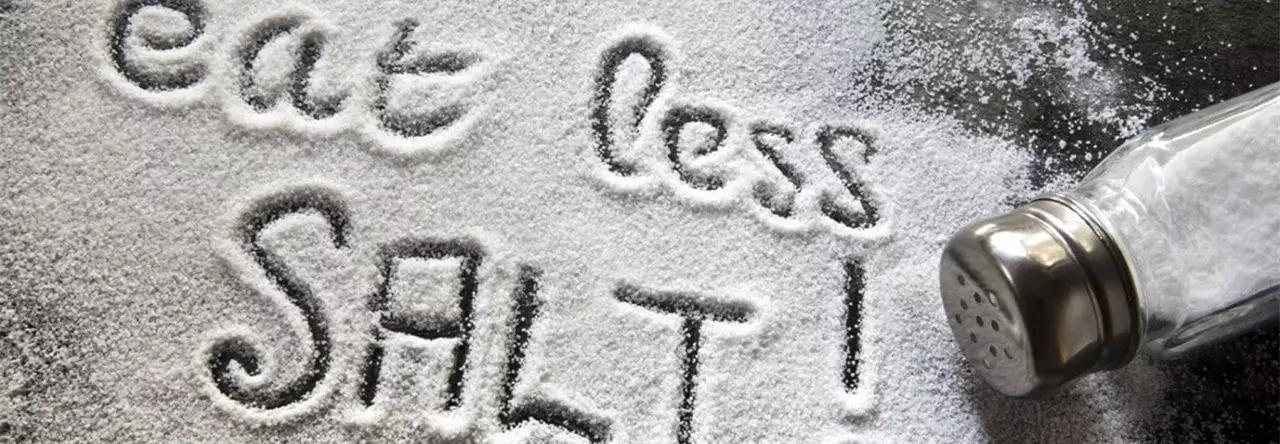Salt Restriction May Help Ease Excessive Urination At Night, Claims Study
- byDoctor News Daily Team
- 09 July, 2025
- 0 Comments
- 0 Mins

Nocturia is a highly prevalent lower urinary tract symptom (LUTS) that equally affects both men and women of all ages, with higher rates in older populations. A recent study recommends the high salt intakers with nocturia, to reduce the salt intake which inturns effectively reduces the night voiding frequency. The study findings were published in the journal Neurology and Urodynamics on February 01, 2021.
Although very common, nocturia remains an underreported, under-treated and poorly managed medical and social problem in adults. It is essential that physicians and other healthcare professionals understand the aetiology, burden and the most effective methods for diagnosing, assessing and treating nocturia. However, the effect of salt intake on nocturia is understudied. To fill the knowledge gap, researchers of the Nagasaki University Graduate School of Biomedical Sciences, Nagasaki, Japan, conducted a study, to assess the efficacy of salt reduction for improving nocturia in patients with high salt intake.
It was a prospective study on 321 patients with nocturia and excessive salt intake (8 grams per day for men and 7 grams or more per day for women). The investigators instructed patients on salt intake restriction. Patients were instructed to use a brochure for salt intake restriction via interview once every four weeks. They estimated the daily salt intake using spot urine specimens.
Key findings of the study were:
• Among 321 patients, the researchers noted that 223 (69.5%) successfully decreased their daily salt intake (S group) and 98 (30.5%) did not (F group).
• In the S group, they observed that the nocturia improved from 2.3 ± 0.9 to 1.4 ± 1.0, and nocturnal polyuria index (NPi) improved from 30.2 ± 7.5 to 27.7 ± 7.3%.
• In the Core Lower Urinary Tract Symptom Score (CLSS) of the S group, they noted improvement in Q3 (urgency) from 1.0 ± 1.0 to 0.9 ± 1.0 (P = 0.001); the also noted an improvement in Q1 (diurnal frequency) and Q2 (nocturia).
• Moreover, they reported significant improvement in the quality of life.
• They also noted that patients in the F group did not have improvements in any symptom, during the study period.
The authors concluded, "Patients with nocturia who also have high salt intake should be advised to reduce their salt intake, as a lifestyle modification. Our results support the importance of randomized clinical trials with larger populations and the appropriate inclusion/exclusion criteria to conclude the clinical usefulness of salt reduction in this patient cohort."
For further information:
https://onlinelibrary.wiley.com/doi/abs/10.1002/nau.23929
Disclaimer: This website is designed for healthcare professionals and serves solely for informational purposes.
The content provided should not be interpreted as medical advice, diagnosis, treatment recommendations, prescriptions, or endorsements of specific medical practices. It is not a replacement for professional medical consultation or the expertise of a licensed healthcare provider.
Given the ever-evolving nature of medical science, we strive to keep our information accurate and up to date. However, we do not guarantee the completeness or accuracy of the content.
If you come across any inconsistencies, please reach out to us at
admin@doctornewsdaily.com.
We do not support or endorse medical opinions, treatments, or recommendations that contradict the advice of qualified healthcare professionals.
By using this website, you agree to our
Terms of Use,
Privacy Policy, and
Advertisement Policy.
For further details, please review our
Full Disclaimer.
Tags:
Recent News
PG AYUSH: DME Gujarat notifies schedule for Round...
- 28 October, 2025
Delhi Doctor accused under PCPNDT Act gets court r...
- 28 October, 2025
TCT 2025: ShortCUT Trial Compares Cutting Balloon...
- 28 October, 2025
Daily Newsletter
Get all the top stories from Blogs to keep track.


0 Comments
Post a comment
No comments yet. Be the first to comment!